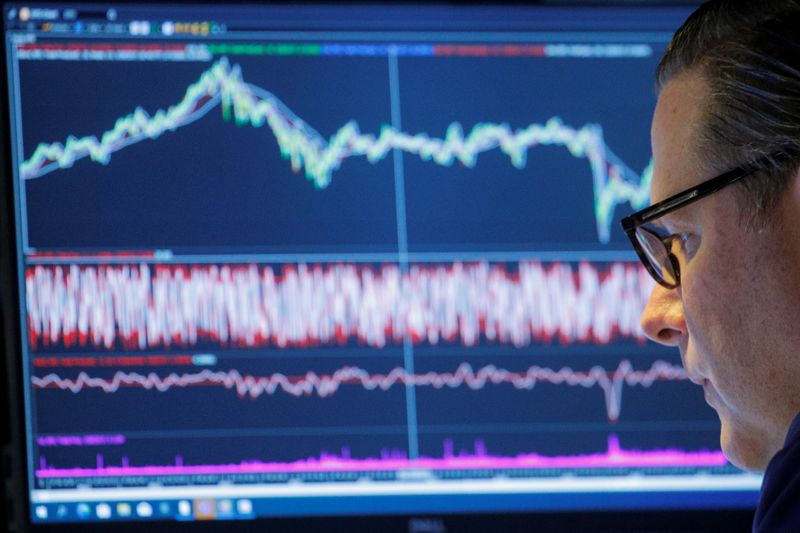Topline
Losses from a pair of big-name companies, Apple and Tesla, headlined a broader slide in the stock market Thursday, a rocky start to the year’s first trading session after 2023 and 2024’s roaring bull market.
Traders work on the floor of the New York Stock Exchange on Thursday.
Key Facts
Each of the three major indexes declined Thursday, as the Dow Jones Industrial Average fell 0.6%, or 240 points, the S&P 500 dropped 0.5% and the tech-heavy Nasdaq pulled back 0.6% by mid afternoon.
Tesla was the worst-performing stock on the benchmark S&P on a percentage basis, falling 6.6% to a four-week low after the company reported fourth-quarter vehicle deliveries below consensus analyst forecasts.
Apple stock’s 3.2% decline has the Silicon Valley titan on pace for its worst day in five months after the company took the rare step of discounting its iPhone models in China, elevating Wall Street’s longheld concerns about Apple’s shaky foothold in the country which accounted for more than 15% of the company’s 2024 revenues.
Down about 4% from its all-time high set last month, the S&P is now up just 1% since Election Day, trimming much of the gains associated with the lower tax rates and looser regulations backed by President-elect Donald Trump.
Big Number
$370 billion. That’s about how much combined market capitalization Apple and Tesla lost Thursday, accounting for much of the decline of the market cap-weighted S&P. Apple and Tesla are the first and seventh most valuable companies on the S&P, respectively.
Tangent
Thursday furthered a historically unusual down stretch for stocks colloquially known as the Santa Claus rally, referring to better-than-average gains in the final five trading days of a year and first two sessions of the following year. That period has brought an average return of 1.3% for the S&P dating back to 1950. The S&P is down more than 2% in the 2024-25 Santa Claus rally stretch, which will conclude Friday.
Key Background
The S&P is fresh off of its first back-to-back years of at least 20% gains since the 1990s, rising nearly 60% over the course of 2023 and 2024, including reinvested dividends. Most Wall Street strategists call for another year of solid, albeit sub-20%, gains in 2025 thanks to tailwinds such as lower interest rates and easing recession fears.
Further Reading




